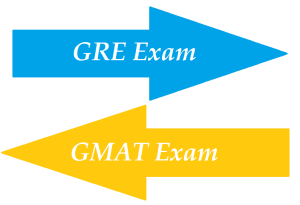It’s common for aspiring graduate students to stress over the potential requirement of entrance exams for an MHA, and for good reason. Most schools do require the GMAT as part of the prerequisites and application materials sent to the admissions committee. Increasingly, however, schools with an MHA program are accepting the GRE in place of the GMAT, if students feel they can perform better on that test instead. Many other schools offer help with studying and test day preparation, giving their applicants a chance to maximize their odds of a great score and a better chance at admission to the program. Before stressing over this challenging exam, keep a few things in mind.
MHA Programs Often Allow Test Substitution
 In what could best be described as a new trend among management and administration programs, many schools offering MHA and MBA degrees have begun allowing students to submit GRE test results in place of the traditional GMAT exam score. This is for good reason: The GRE is easily the most common entrance exam for all graduate programs, and many applicants may have already taken the test for a different program they were considering. Why take two entrance exams and waste money on the GMAT?
In what could best be described as a new trend among management and administration programs, many schools offering MHA and MBA degrees have begun allowing students to submit GRE test results in place of the traditional GMAT exam score. This is for good reason: The GRE is easily the most common entrance exam for all graduate programs, and many applicants may have already taken the test for a different program they were considering. Why take two entrance exams and waste money on the GMAT?
While many schools will accept GRE scores from applicants as a substitution for GMAT scores, it is important to verify this through their their website or admissions packet. When those scores are submitted, the school will use a GRE-to-GMAT score conversion chart that has been published by the Educational Testing Service. Essentially, schools want to make sure that an applicant’s performance on the GRE is on par with the average GMAT score submitted by applicants who took the more traditional route to program admission. Students can also log into their ETS account and do a GRE-to-GMAT score conversion on their own before submitting the application.
Many Schools Offer Test Prep Classes
Another big trend in recent years has been to offer prospective MHA applicants a GMAT test prep class, with the promise of a significant tuition rebate if the student gains admission to the program after taking the class and sitting for the GMAT. Many schools have partnered with the Princeton Review, Manhattan GMAT, and Kaplan, in an effort to offer official, helpful classes for an affordable rate. For students who haven’t yet taken the GMAT, and want to ensure the highest score possible on the test in order to apply to a competitive program, this is a value-packed option that could be the difference between a borderline score and one that falls within the applicant pool average.
Consider Applying for a GMAT or GRE Score Waiver
While virtually all MHA programs require the GMAT for admission, a small number will offer to waive the score based on a few of the applicant’s characteristics. Many AACSB-accredited MHA programs will waive the test for students who graduated with an AACSB-accredited undergraduate business degree, while others will waive the requirement for members of the AACSB’s Beta Gamma Sigma honor society. Some students may also find that they qualify for a waiver if they’ve achieved at least a 3.5 undergraduate GPA or if they’ve completed at least one other advanced degree prior to filing their application.
A Challenging Exam Requirement, But Not a Dead End for Applicants
Admissions committees are dedicated to helping their applicants have a strong chance of acceptance to an MHA program. That’s why most schools offer GMAT waivers, GRE alternatives, and discounted test prep classes. Admissions committees also look at the “whole applicant,” evaluating their essays, resume, transcripts, and personal interviews. For this reason, the required entrance exams for an MHA should be viewed as a stepping-stone rather than a stressor.